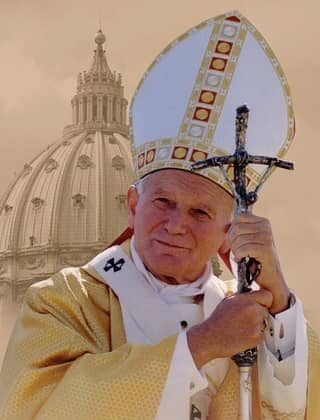The Impact of Pope Francis on Modern Catholicism
In the annals of the Catholic Church’s history, few leaders have made as profound an impact as Pope Francis. Since ascending to the papacy in March 2013, Pope Francis has endeared himself to millions, reinvigorating the faithful while also garnering admiration from religious and secular communities alike.
His influence extends beyond traditional church matters, touching on social, economic, and political issues and signaling a new era for modern Catholicism.
This blog post contains affiliate links. When you click on a link on this page and make a purchase I may earn a small commission, at no additional cost to you. Thank you for your support.
A New Vision for the Papacy
From the outset, Pope Francis’ choice of name signaled a paradigm shift. Named after St. Francis of Assisi, known for his devotion to humility and care for the poor, Pope Francis indicated a commitment to these values. This decision resonated with many Catholics who yearned for a more approachable and socially conscious pontiff.
His vision also includes a decentralization of the Church’s power structure. Pope Francis has actively encouraged bishops to have a more significant role in decision-making processes, thus fostering a more inclusive governance model within the Church.

Advocacy for Social Justice
One of the hallmarks of Pope Francis’ leadership is his advocacy for social justice. He has consistently spoken out against economic inequality, calling for global economic reforms to support the disenfranchised. His encyclical, “Laudato Si’,” addresses environmental concerns and challenges both individuals and nations to take responsibility for the planet’s future.
Pope Francis has also addressed pressing social issues such as migration, urging nations to show compassion and solidarity with refugees and migrants. His emphasis on human dignity and social responsibility has inspired Catholics worldwide to engage more actively in humanitarian efforts.
Progressive Stances on Controversial Issues
While maintaining core doctrinal beliefs, Pope Francis has taken a more progressive stance on several controversial issues. His approach to LGBTQ+ matters, divorce, and interfaith dialogue has marked a significant departure from previous papacies.
For instance, his famous remark, “Who am I to judge?” regarding LGBTQ+ individuals, signaled a more inclusive and accepting tone. While the Church’s official teachings have not changed, this approach has opened up dialogues and fostered a more compassionate atmosphere within the Catholic community.
Focus on Clerical Transparency and Accountability
In an era plagued by revelations of abuse within the Church, Pope Francis has made efforts to address these scandals head-on. He has emphasized the importance of transparency, accountability, and justice. Notably, he has taken steps to hold clergy accountable for abuses and has met with survivors to offer apologies and support.
His call for a “zero tolerance” policy against sexual abuse and the establishment of new mechanisms to prevent such abuses in the future demonstrate his commitment to restoring trust in the Church.
Revitalizing the Church’s Global Presence
Pope Francis has traveled extensively, bringing his message of love, compassion, and reform to every corner of the globe. His presence in countries with significant Catholic populations has reinvigorated local churches and built bridges between different cultures and religions.
By addressing global audiences and participating in interfaith dialogues, Pope Francis has broadened the reach of the Catholic Church and encouraged cooperation on global problems. His efforts have highlighted the Church’s potential role as a unifying force in an increasingly divided world.
Conclusion
Pope Francis’ impact on modern Catholicism is profound and multifaceted. Through his vision of a humble, socially conscious, and inclusive Church, he has revitalized the faith of many and expanded the Church’s role in addressing contemporary issues. His legacy is one of compassion, justice, and a commitment to the values of humility and service.
As his papacy continues, the world watches with anticipation for further transformative changes that align the Church closely with the needs and hopes of modern society.
Looking for unique Catholic gifts? Check out our gift guide!
